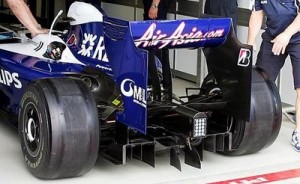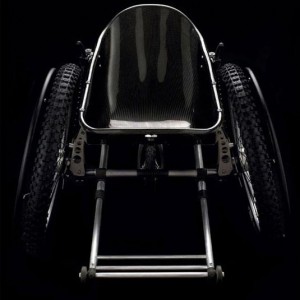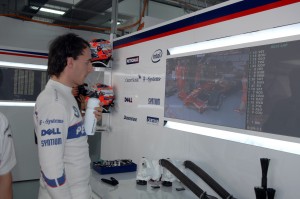
Well this is one way to generate some publicity before the start of the season.
In a meeting of the World Motor Sport Council in Paris on Tuesday the FIA decided to ignore almost all the proposals of FOTA and introduce a new scoring system for 2009 where the World Drivers’ Championship will be decided by the number of wins rather than points.
In rejecting the new points system proposed by FOTA , the FIA have, in effect, decided to go with Bernie Ecclestone’s ‘medals‘ scheme, just without the actual medals.
Here is what the FIA press release says about the new scoring system:
The WMSC accepted the proposal from Formula One Management to award the drivers championship to the driver who has won the most races during the season. If two or more drivers finish the season with the same number of wins, the title will be awarded to the driver with the most points, the allocation of points being based on the current 10, 8, 6 etc. system.
The rest of the standings, from second to last place, will be decided by the current points system. There is no provision to award medals for first, second or third place. The Constructors Championship is unaffected.
The WMSC rejected the alternative proposal from the Formula One Teams Association to change the points awarded to drivers finishing in first, second and third place to 12, 9 and 7 points respectively.
This strikes me as a weird decision. Personally, I don’t think the current points system needed changing at all. It produced two of the closest, most exciting Formula One seasons we’ve seen over the last two years and I can’t see how changing it would have made them any better. But apparently a large number of fans want to see drivers rewarded more for wins and I think FOTA’s proposed points system of 12-9-7-5-4-3-2-1 would have achieved that without fundamentally changing the scoring system for the Drivers’ Championship. If Bernie’s system produces more aggressive driving from second place then that can only be a good thing but I have my doubts.
Not content with one radical announcement the FIA have also introduced an optional budget cap of £30 million in 2010. The cap is optional because while teams may continue to spend as much as they wish, those teams who choose to stay within the cap will be given much freer reign with the regulations. Here is what the press release says:
As an alternative to running under the existing rules, which are to remain stable until 2012, all teams will have the option to compete with cars built and operated within a stringent cost cap.
The cost cap is £30m (currently approximately 33 or $42m). This figure will cover all expenditure of any kind. Anything subsidised or supplied free will be deemed to have cost its full commercial value and rigorous auditing procedures will apply.
To enable these cars to compete with those from teams which are not subject to cost constraints, the cost-capped cars will be allowed greater technical freedom.
The principal technical freedoms allowed are as follows:
1. A more aerodynamically efficient (but standard) under body.
2. Movable wings.
3. An engine which is not subject to a rev limit or a development freeze.
The FIA has the right to adjust elements of these freedoms to ensure that the cost-capped cars have neither an advantage nor a disadvantage when compared to cars running to the existing rules.
This is quite a radical move. FIA president Max Mosley has wanted to introduce budget caps for a while now but in the past said they would be hard to enforce. Supposedly giving teams a choice makes this easier although I’m not really sure how. There is a Q & A with Mosley on the FIA site where he says:
We involved forensic accountants from Deloitte and Touche as well as financial experts from the current teams. The vast majority of payments are traceable and any benefits in kind can be valued. There were a number of meetings. It became clear we could do it. The problem was getting the current teams to agree a figure. Also, the majority wanted a lot of exclusions such as land and buildings, the team principal’s salary and the drivers. We would also need the right to carry out very intrusive audits and impose severe penalties for overspend. However these difficulties no longer arise because each team will now be able to choose whether or not to run under the cost cap.
On the face of it, this sounds like an interesting idea and could reward smaller, technologically innovative teams like Williams but it is also a major upheaval in the regulations and it could be confusing having effectively two different classes of cars competing.
Of course, the FIA’s decision to ignore practically all of FOTA’s suggestions didn’t go down too well with the teams:
With regard to the decisions taken today by the FIA World Council, FOTA would like to express its disappointment and concern at the fact that these have been taken in a unilateral manner.
The framework of the regulations as defined by the FIA, to be applicable as from 2010, runs the risk of turning on its head the very essence of Formula 1 and the principles that make it one of the most popular and appealing sports.
Given the timeframe and the way in which these modifications were decided upon, we feel it is necessary to study closely the new situation and to do everything, especially in these difficult times, to maintain a stable framework for the regulations without continuous upheaval, that can be perplexing and confusing for car manufacturers, teams, the public and sponsors.
FOTA are obviously unhappy that these new regulations have been voted through without consultation and it will be interesting to see the response from the newly united teams.
 Brawn GP, Williams and Toyota are free to continue using their controversial double-decker diffusers after the FIA International Court of Appeal decided to deny the appeals of Ferrari, Red Bull and Renault.
Brawn GP, Williams and Toyota are free to continue using their controversial double-decker diffusers after the FIA International Court of Appeal decided to deny the appeals of Ferrari, Red Bull and Renault.

 One of the key proposals of
One of the key proposals of  The Formula One Teams’ Association (FOTA) today outlined its roadmap for Formula One at a press conference in Geneva at which senior management figures from all 10 current Formula One teams shared the stage together.
The Formula One Teams’ Association (FOTA) today outlined its roadmap for Formula One at a press conference in Geneva at which senior management figures from all 10 current Formula One teams shared the stage together.